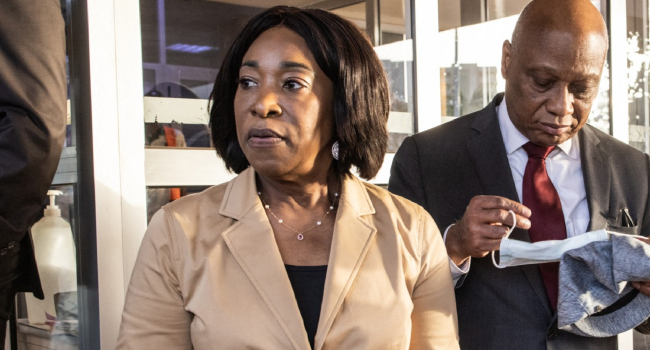The 56-nation Commonwealth has announced Ghana’s Foreign Minister, Shirley Ayorkor Botchwey, as the organisation’s new Secretary-General at a contentious summit that concluded in Samoa on Saturday.
The Commonwealth, a voluntary association of sovereign states, largely comprises former British colonies.
Botchwey, one of three contenders for the role, has publicly supported calls for Britain to address the enduring impacts of colonialism and slavery. A former Member of Parliament, she has served as Ghana’s Foreign Minister for seven years, overseeing Ghana’s two-year tenure on the UN Security Council, which concludes in December 2023.
She has advocated for a free trade agreement among Commonwealth member states and has previously voiced support for reparations.
“Financial reparations are crucial,” she remarked at an event in London earlier this year.
The role of Commonwealth Secretary-General is limited to two four-year terms. The incumbent, Baroness Patricia Scotland from Dominica, has led the organisation until now.
Following tradition, the Secretary-General position rotates among the Commonwealth’s four regional blocs: the Pacific, Asia, Europe, and Africa. It was Africa’s turn for leadership.
Botchwey expressed her gratitude on social media, saying she was “truly humbled by the overwhelming support of the Commonwealth Heads of Government in selecting me as the incoming Secretary-General. The work indeed lies ahead!”
The Commonwealth champions democratic governance, trade cooperation, education, climate advocacy, and financial transparency. Though King Charles III is the ceremonial head, the Secretary-General manages the London-based secretariat.
Botchwey’s appointment was confirmed at a summit in Samoa, originally expected to focus on climate change but marked by intense debate on reparations. Many African, Caribbean, and Pacific nations are calling for Britain and other European nations to offer financial compensation or political amends for slavery’s legacy.
The Bahamas’ Prime Minister, Philip Davis, emphasised the need for dialogue on historical injustices, calling it a necessary step. “The time has come to have a real dialogue about how we address these historical wrongs,” he told AFP. “Reparatory justice is not an easy conversation, but it’s an important one.”
Experts estimate that between 10-15 million enslaved Africans were transported to the Americas over four centuries, with the true toll likely higher. Although the British royal family has faced calls to apologise for its involvement, King Charles stopped short of an apology at the summit, urging delegates to “reject the language of division.”
“I understand, from listening to people across the Commonwealth, how the most painful aspects of our past continue to resonate,” he said. “None of us can change the past. But we can commit, with all our hearts, to learning its lessons and to finding creative ways to right inequalities that endure.”



